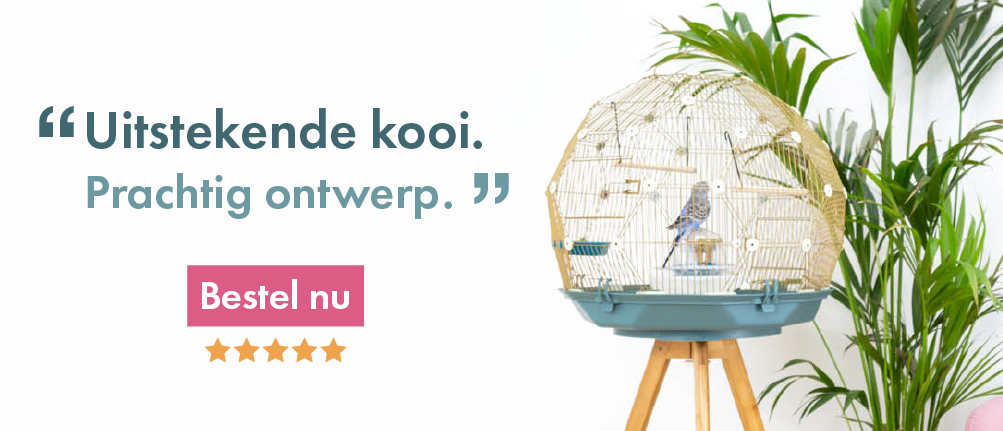Budgies are rarely aggressive by nature: their burst of temper will come and go quickly. They will fight over food, and will often clash briefly over friends, toys or territory; but this is all a normal part of budgie society. Ninety-nine percent of the time, this surface level of social aggression is to do with food, personal space or mating. A cock bird will jealously guard his hen during the nest-building and mating period. A hen bird will become territorial and relatively aggressive during this period, too. As long as things don’t get out of hand, it’s nothing to worry about.
If the birds’ aggression is focused on one increasingly intimidated individual, it may become necessary to separate them. On rare occasions this can happen when two birds are simply not compatible, for reasons we can’t fathom. This is unfortunate if they are your only two birds, but the only constructive thing to do is to cage them separately, and try to reintroduce them at a later date, first by putting the cages side by side and then, if that goes well, allowing them to cohabit once more.
With mating season testosterone bubbling in his brain, a dominant cock bird might try to make life miserable for his neighbours. Similarly, a hen with nesting on her mind may become short-tempered too. It’s important not to over-react in these circumstances – the birds' madness will disappear once the mating urge has passed, and as long as it’s not one timid bird taking all the grief, the flock will sort its problems out without you having to intervene. If a single bird is being bullied all the time, you may have to remove it while the aggressive one is attempting to be king or queen of the roost.

An aggressive bird will use his beak as a weapon
Budgie Dominant Behaviour
A dominant bird, whether cock or hen, will show aggression by squawking and biting. It will often raise its wings as it squawks – the kind of behaviour you encounter daily if you keep lots of budgies in an aviary and watch them taking their very uncivilised, bickering breakfast!
Spotting aggression in a budgie may be tricky for beginners, as the birds are often hyperactive, vocal and socialising physically without being aggressive. Here are some tell-tale signs to look out for:
- Raised wings – the budgie equivalent of raising your fists.
- Hissing – the throaty hiss of the budgie says “keep away!”
- Biting another bird’s feet – this is never done as part of a mutual grooming session, and is always meant aggressively.
- Picking at another bird’s feathers or head – if done gently, with a happy recipient, this is simply mutual grooming, which is what contented birds do. If the action is violent, you’re witnessing a fight. It will usually fizzle out once the less dominant bird has had enough and retreats.
- Chasing birds around the cage – if an aggressive bird pursues another individual for any length of time, you might have a problem on your hands. If this happens regularly, one of the two birds will need isolating for a week. Keep a close eye on the birds once they have been reintegrated.
- Not letting another bird eat or drink – small outbreaks of bad temper around food and water are normal. Providing more than one feeding station – or a sufficiently big one – usually sorts this problem out. If a budgie is going out of his way to keep another bird from feeding for any length of time, you have a similar problem to the chasing issue mentioned above.
- Targeting a new bird – a restocked flock will need to find its own balance. Keep an eye on behaviour, and only intervene if there is persistent, detrimental bullying. Jealousy may be an issue in a smaller cage set up – your established bird may resent the attention you are giving the newcomer. Keep the older bird happy with finger treats and attention, and his tantrum should subside.
- Defending a perch or food bowl – this is usually a symptom of overcrowding. Make sure you’ve given your birds enough space and provided plenty of different perches and bowls.

Budgies will defend their territory if the cage is overcrowded
- Biting your finger – your hand may become a target if inserted into an angry budgie’s cage, but a budgie’s beak (unlike larger members of the parrot family) cannot inflict much damage on an adult hand. Children might find it off-putting, however, if their beloved pet launches an attack on their inserted finger. Discourage them from interfering with a grumpy or dominant bird. If he’s been finger-trained, some gentle belly-stroking will often calm the budgie down, or he will hop onto your finger and nibble the spray of millet you’ve very thoughtfully wedged between your forefinger and thumb.





Reacties
Er zijn nog geen reacties